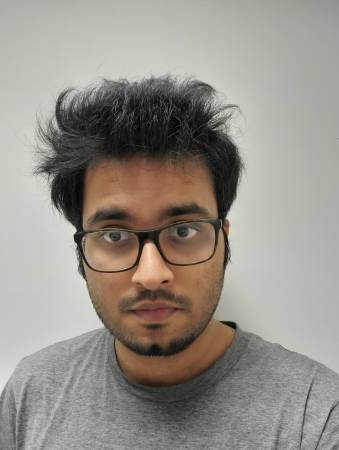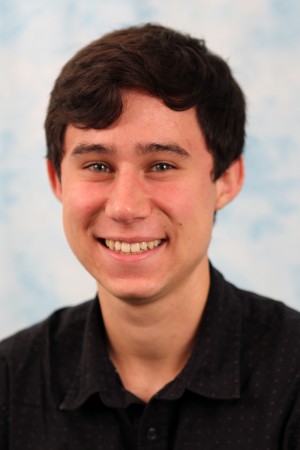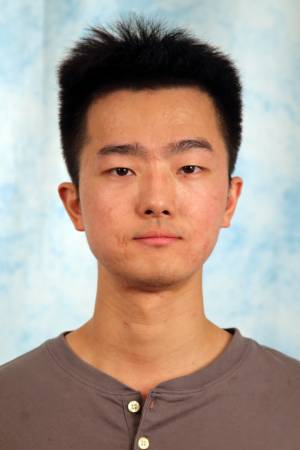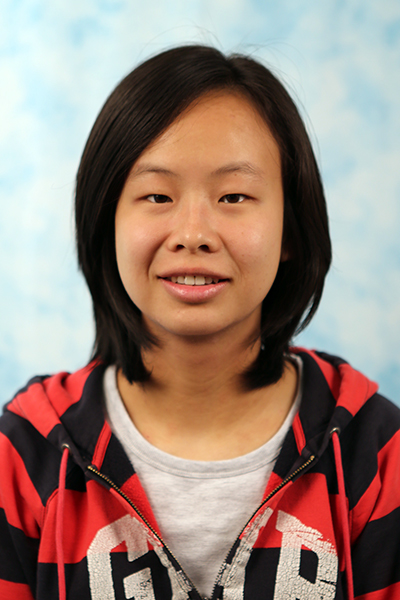Probabilistic 3D Multi-Object Cooperative Tracking for Autonomous Driving via Differentiable Multi-Sensor Kalman Filter
This talk has been postponed […]
Towards diverse zero-shot manipulation via actualizing visual plans
Abstract: In this thesis, we seek to learn a generalizable goal-conditioned policy that enables zero-shot robot manipulation — interacting with unseen objects in novel scenes without test-time adaptation. Robots that can be reliably deployed out-of-the-box in new scenarios have the potential for helping humans in everyday tasks. Not requiring any test-time training through demonstrations or [...]
Deep Learning for Sensors: Development to Deployment
Abstract: Robots rely heavily on sensing to reason about physical interactions, and recent advancements in rapid prototyping, MEMS sensing, and machine learning have led to a plethora of sensing alternatives. However, few of these sensors have gained widespread use among roboticists. This thesis proposes a framework for incorporating sensors into a robot learning paradigm, from [...]
Offline Learning for Stochastic Multi-Agent Planning in Autonomous Driving
Abstract: Fully autonomous vehicles have the potential to greatly reduce vehicular accidents and revolutionize how people travel and how we transport goods. Many of the major challenges for autonomous driving systems emerge from the numerous traffic situations that require complex interactions with other agents. For the foreseeable future, autonomous vehicles will have to share the [...]
Teruko Yata Memorial Lecture
Human-Centric Robots and How Learning Enables Generality Abstract: Humans have dreamt of robot helpers forever. What's new is that this dream is becoming real. New developments in AI, building on foundations of hardware and passive dynamics, enable vastly improved generality. Robots can step out of highly structured environments and become more human-centric: operating in human [...]
2024 Robotics Institute National Robotics Week Celebration Tours and Demos
April 12 1:00 - 4:00 pm: PUBLIC SPACE ROBOTS Open to the public TANK the roboceptionist Newell-Simon Hall 3rd floor entry area Meet Marion (Tank) LeFleur, Newell-Simon’s Roboceptionist. He’ll be glad to see you! The goal of the project is to produce a robot helpmate that is useful, exhibits social competence, and remains compelling to [...]
Creating robust deep learning models involves effectively managing nuisance variables
Abstract: Over the past decade, we have witnessed significant advances in capabilities of deep neural network models in vision and machine learning. However, issues related to bias, discrimination, and fairness in general, have received a great deal of negative attention (e.g., mistakes in surveillance and animal-human confusion of vision models). But bias in AI models [...]
Transfer Learning via Temporal Contrastive Learning Inbox
Abstract: This thesis introduces a novel transfer learning framework for deep reinforcement learning. The approach automatically combines goal-conditioned policies with temporal contrastive learning to discover meaningful sub-goals. The approach involves pre-training a goal-conditioned agent, finetuning it on the target domain, and using contrastive learning to construct a planning graph that guides the agent via sub-goals. Experiments [...]
Towards Influence-Aware Safe Human-Robot Interaction
Abstract: In recent years, we have seen through recommender systems on social media how influential (and potentially harmful) algorithms can be in our lives, sometimes creating polarization and conspiracies that lead to unsafe behavior. Now that robots are also growing more common in the real world, we must be very careful to ensure that they [...]
Learning to Manipulate beyond Imitation
Abstract: Imitation learning has been a prevalent approach for teaching robots manipulation skills but still suffers from scalability and generalizability. In this talk, I'll argue for going beyond elementary behavioral imitation from human demonstrations. Instead, I'll present two key directions: 1) Creating Manipulation Controllers from Pre-Trained Representations, and 2) Representing Video Demonstrations with Parameterized Symbolic [...]
Advanced robotics for manufacturing: challenges and opportunities
Abstract: Presenting projects with ARM Institute (including robot grinding, human-robot collaboration, and modularized manufacturing) and discussing some new opportunities in applying AI and robotics in manufacturing domain.
Improving Robot Capabilities Through Reconfigurability
Abstract: Advancements in robot capabilities are often achieved through integrating more hardware components. These hardware additions often lead to systems with high power consumption, fragility, and difficulties in control and maintenance. However, is this approach the only path to enhancing robot functionality? In this talk, I introduce the PuzzleBots, a modular multi-robot system with passive [...]
RI Faculty Business Meeting
Meeting for RI Faculty. Discussions include various department topics, policies, and procedures. Generally meets weekly.
Reduced-Gravity Flights and Field Testing for Lunar and Planetary Rovers
Abstract: As humanity returns to the Moon and is developing outposts and related infrastructure, we need to understand how robots and work machines will behave in this harsh environment. It is challenging to find representative testing environments on Earth for Lunar and planetary rovers. To investigate the effects of reduced-gravity on interactions with granular terrains, [...]











